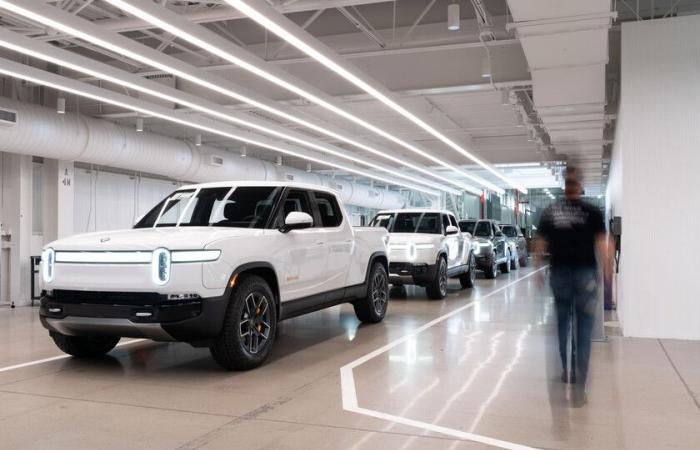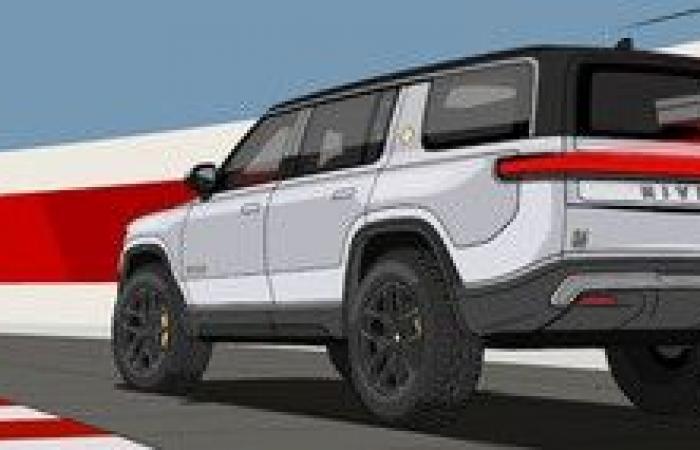At the end of 2024, Volkswagen confirmed that it would injected almost 6,000 million dollars in Rivian. During the previous summer, the Germans announced that they invested 5,000 million dollars in the US car and electric vans company.
Then they defended this measure within a generalized adjustment within the company such as the way to gain presence in the United States and, at the same time, learn in software matter of what is worked on the other side of the puddle. An especially important facet for Germans who have been looking for alternatives in other companies, including China Xpeng.
Almost a year ago, in Volkswagen they claimed that this decision would allow them increase your sales in the United Statesa country where the company has more problems to satisfy a market that demands huge vehicles whose production is available for a hand for the Germans.
That promise, to continue growing in sales, was especially important in the context of cuts mentioned above. In fact, the workers’ representatives came to wonder what guarantees there were that the last and new compromised departure was not a new way of burning another 1,000 million dollars.
To this difficult situation, Donald Trump’s tariffs have been added. The commercial barriers of the new president of the United States have led Volkswagen to look for solutions to alleviate economic damage to their finances. From having hundreds of Audi units stopped at the border until we consider a conversion of one of their plants in the country.
Now, Rivian already adjusts his sales goals.
Down.
The excuse is the tariffs
Rivian should deliver 51,000 units of their cars, pick-up and electric vans at the end of the year. But he already announces that he will not fulfill the plans. The figure has been adjusted downwards, reducing forecasts between 10 and 20%. According to their new accounts, they will put in the market between 40,000 and 46,000 vehicles.
They ensure that the reason is the tariffs imposed by Donald Trump’s government in the United States. Collect in Bloomberg that the company manufactures all its cars in the country and that the vast majority of the pieces are also local but that they warn that the company “is not immune to the impacts of world trade and the economic environment.”

Of course, the company ensures that it can meet the objective of offering a gross benefit at the end of the year. Once taxes and other items are discounted, it is most likely that Rivian continues to give losses.
Tariffs are assuming a real headache for the industry and even is a problem for who manufacture in the United States. Tesla, for example, is the company that will suffer the least impact with these commercial barriers but Elon Musk himself wanted to make it clear that they were also affected by them.
Giants such as Ford or General Motors have been looking for formulas to alleviate the economic blow to their accounts but the situation is especially complicated for two types of companies: those that export to the country most of their production or pieces (such as the Japanese and Europeans) or those of smaller size.

The largest companies have giving way to a stock they had already accumulated. Applying great discounts, it is certain that they have not achieved the benefits per unit they would expect but at least it has allowed them to move forward until the possible new conditions.
However, for small companies such as Rivian the situation is much more complicated. We have already counted that starting a car company forces us to lose money for years and that it is only sustainable if other companies and investors are willing to Leave your money until you see benefits. In this case, a commercial sway is much more pronounced than in any other situation.
Now, Volkswagen has no choice but to maintain the road map and continue supporting Rivian although the economic context that makes it even more complicated. The Germans aspired to learn from this company their secrets around the software, a division that is bringing to the entire Volkswagen group and that already expelled some of their CEO.
Photo |
In Xataka | The sensitive data of 800,000 electric cars from Volkswagen have leaked: from homes to the routines of its owners









